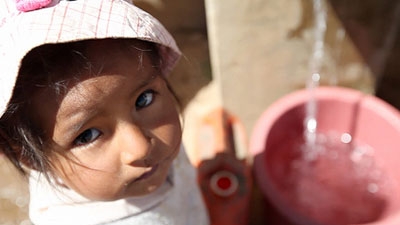In Latin America, a massive 45% of water is lost before it reaches the customer. This non-revenue water not only compounds the challenge of increasing drinking water access, it also represents a huge loss of energy.
Water and sanitation companies around the globe consume around 4% of the total energy produced worldwide, but lose up to four fifths of that energy between plant and tap.
According to the World Bank’s Energy Sector Management Assistance Program, (ESMAP) energy efficiency measures can help water utilities reduce energy costs by 5 and 25%.
Concrete examples of this claim are:
- The Alagoas Water and Sanitation Company (CASAL) and the São Paulo State Basic Sanitation Company (SABESP) increased water access from 13 to 24 hours after reducing the losses through broken pipes and illegal connections. Round-the-clock access is now a reality for one million more people in Benedito Bentes, a neighborhood in Maceió, Alagoas, Brazil.
- An integrated energy management program by Empresas Públicas de Medellín (EPM), in Colombia actively tracks energy use throughout the water system. Their data identifies abnormalities and monitors efficiency goals. By doing this, from 2010 to 2013, EPM saved approximately US$455,000.
- A program implemented by Uruguay’s Obras Sanitarias del Estado (OSE) in Ayui, Artigas, resulted in water savings of 382,000 m3 (corresponding to US$ 156,000) per year, reducing non-revenue water from 73 to 21 % and spurring a scale up movement throughout the country.
Experiences like these were shared recently by water utilities, government agencies, and experts from eight Latin American countries in Mar del Plata, Argentina, in a knowledge and results exchange workshop.

